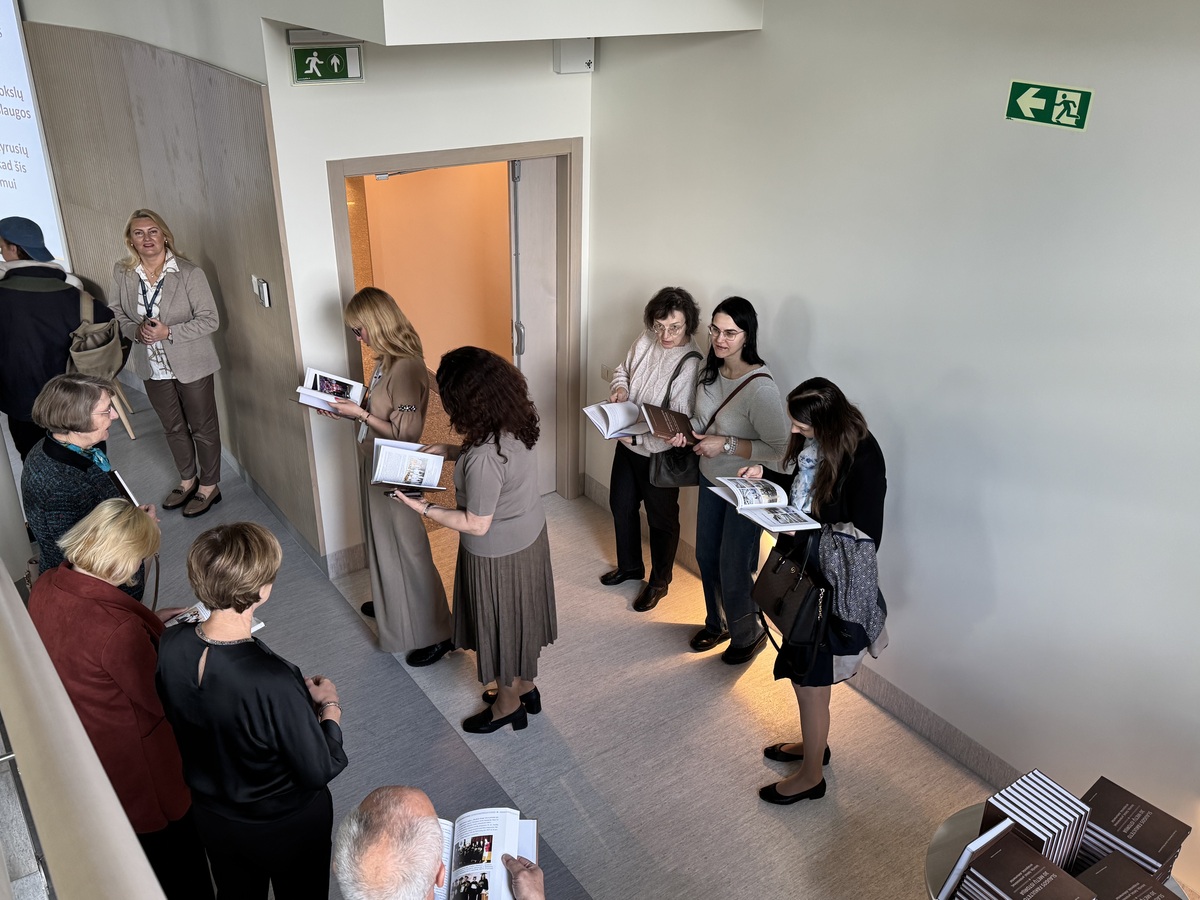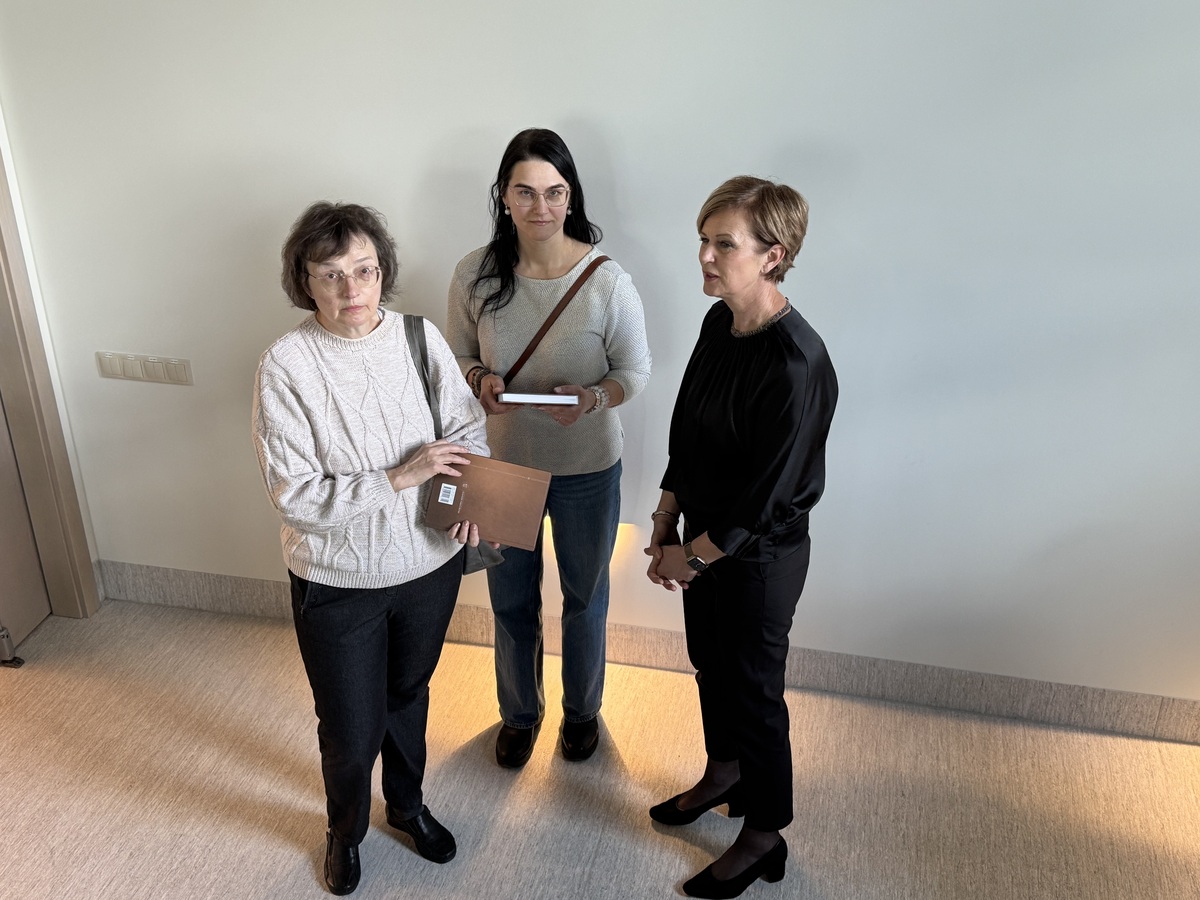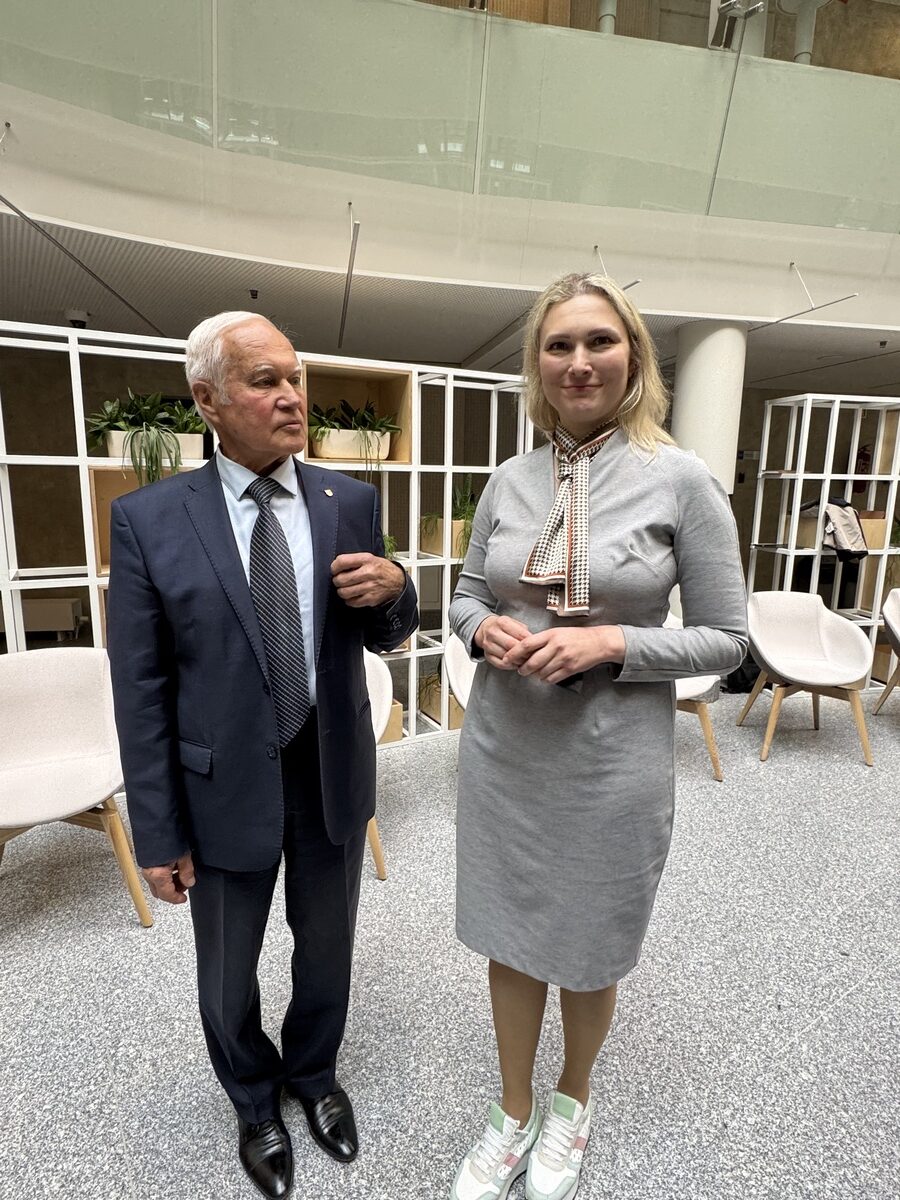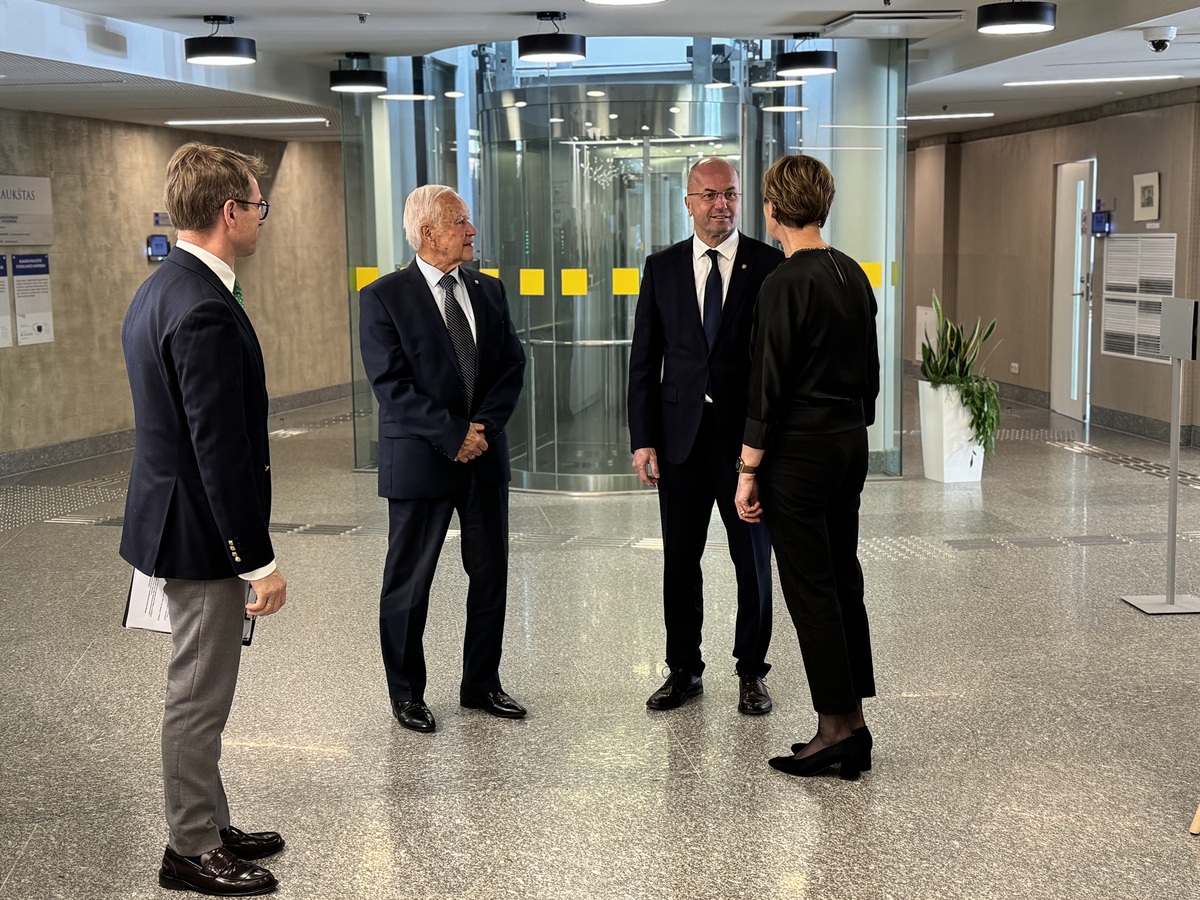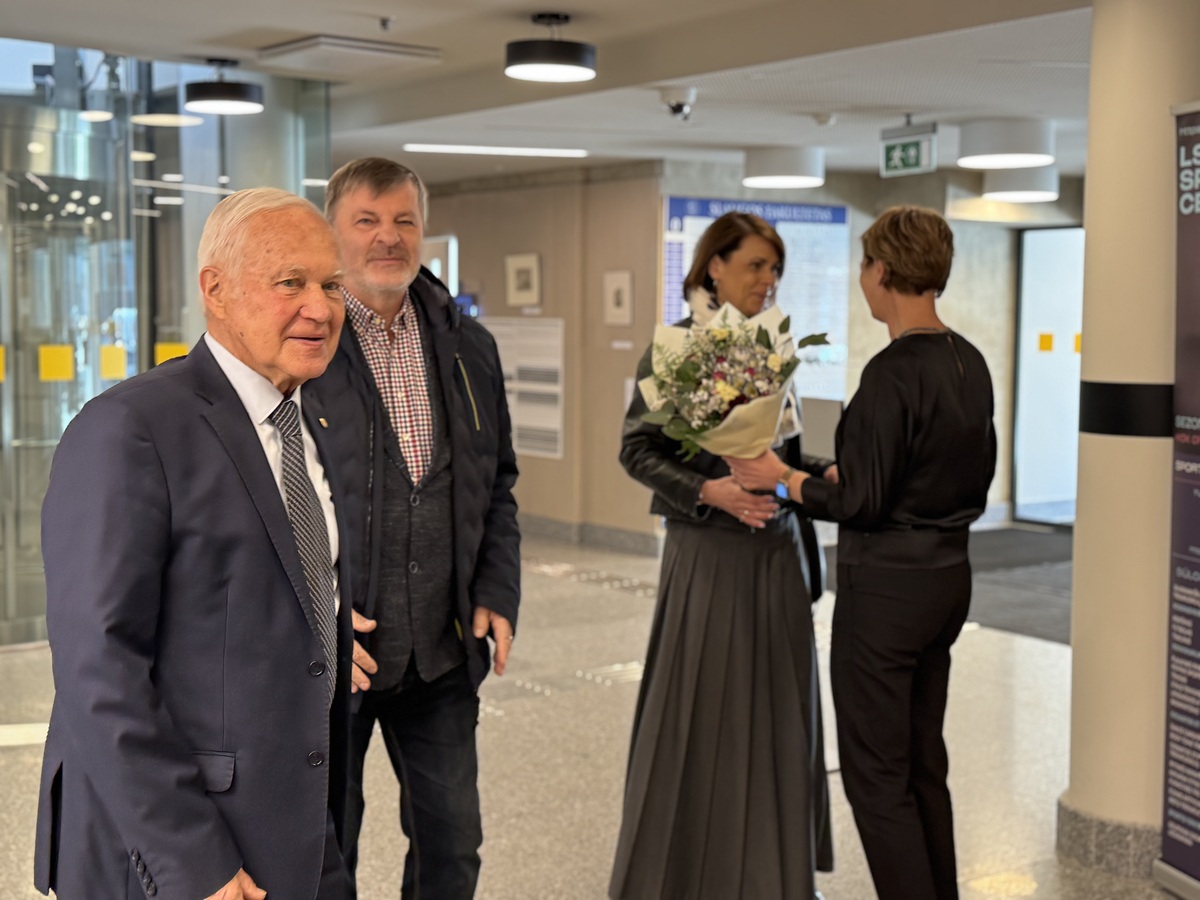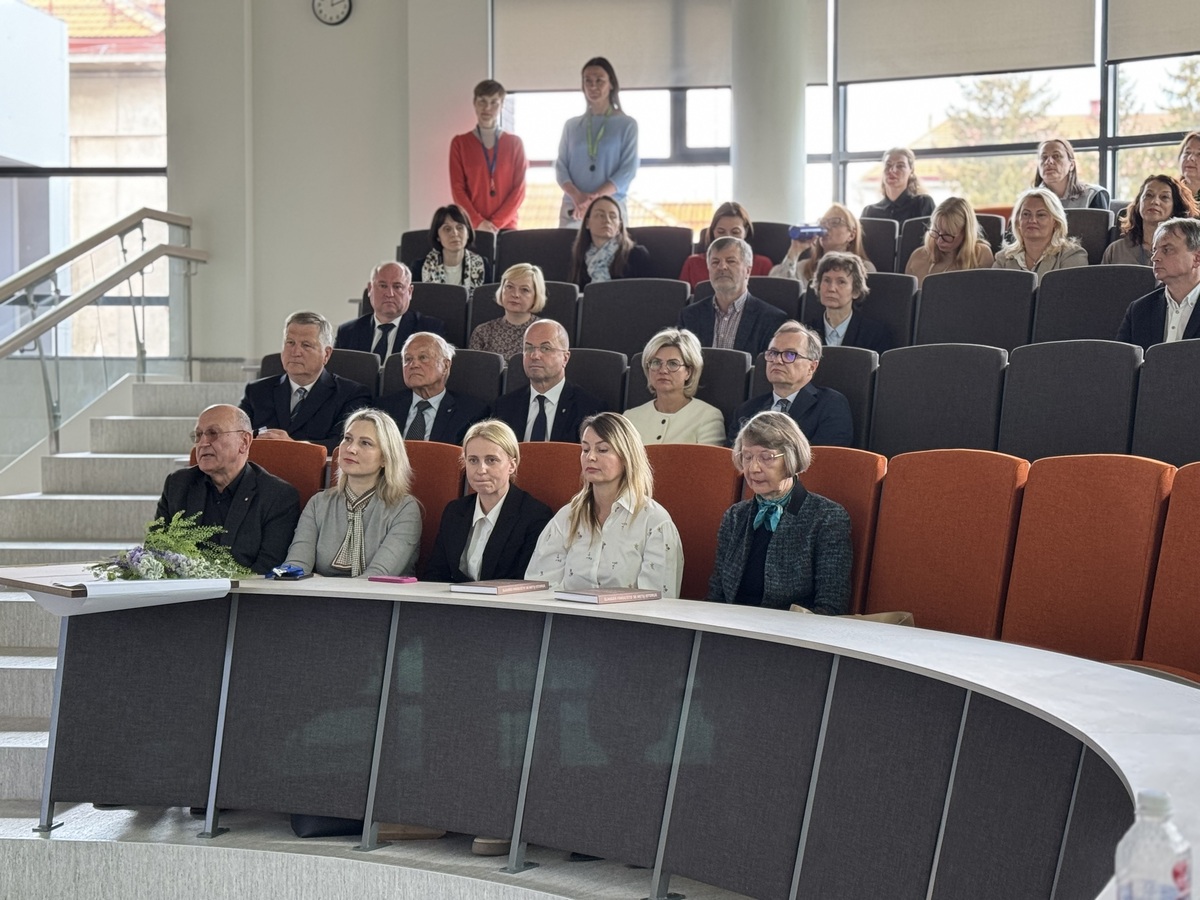A book on the history of LSMU Faculty of Nursing was presented to the public
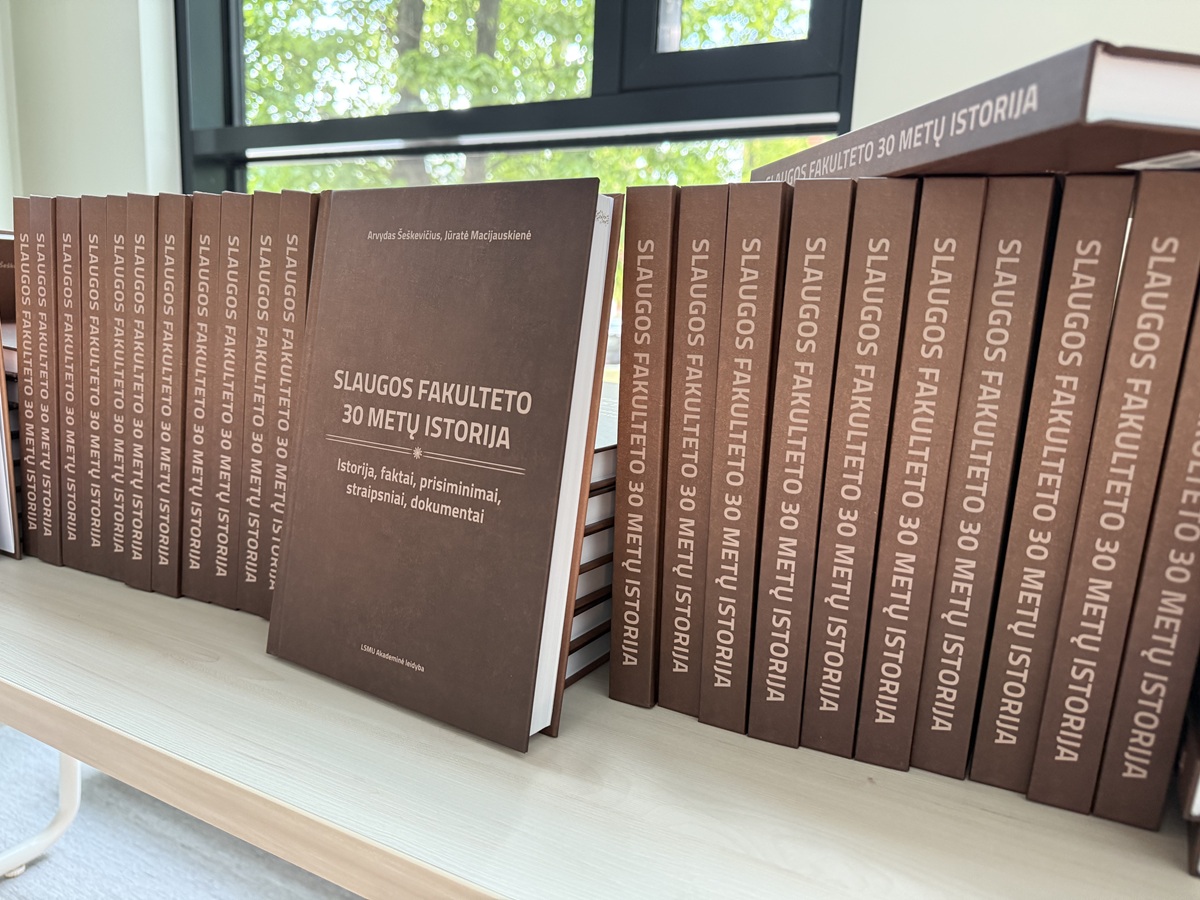
On Thursday, the Faculty of Nursing of the Lithuanian University of Health Sciences (LSMU) held the presentation of the book “Faculty of Nursing 30 Years of History. History, facts, memories, articles, documents”.
This book is a comprehensive chronicle of the establishment, growth and maturity of the LSMU Faculty of Nursing, documenting the history of the Faculty encompassing three decades. In addition to facts, records, and dates, the book featured evocative recollections, scholarly papers, and eye-opening images that showcased the faculty’s contributions to the advancement of the nation’s health sciences and the welfare of the general population.
Recalling the beginning of everything
The publication was prepared by the long-term Dean of the Faculty of Nursing, Chairwoman of the LSMU Senate, Prof. Dr Jūratė Macijauskienė together with one of the founders of the Faculty, a pioneer of palliative care in Lithuania, Cardiologist, Prof. Habil. Dr Arvydas Šeškevičius (deceased).
In his congratulatory speech the LSMU Rector Prof. Dr Rimantas Benetis said that although the faculty is quite young, the nursing profession itself is very old and essential. According to him, the university has purposefully and consistently developed nursing studies, and today we are talking about an increasingly broader role of nurses, greater autonomy, taking over the functions of some doctors.
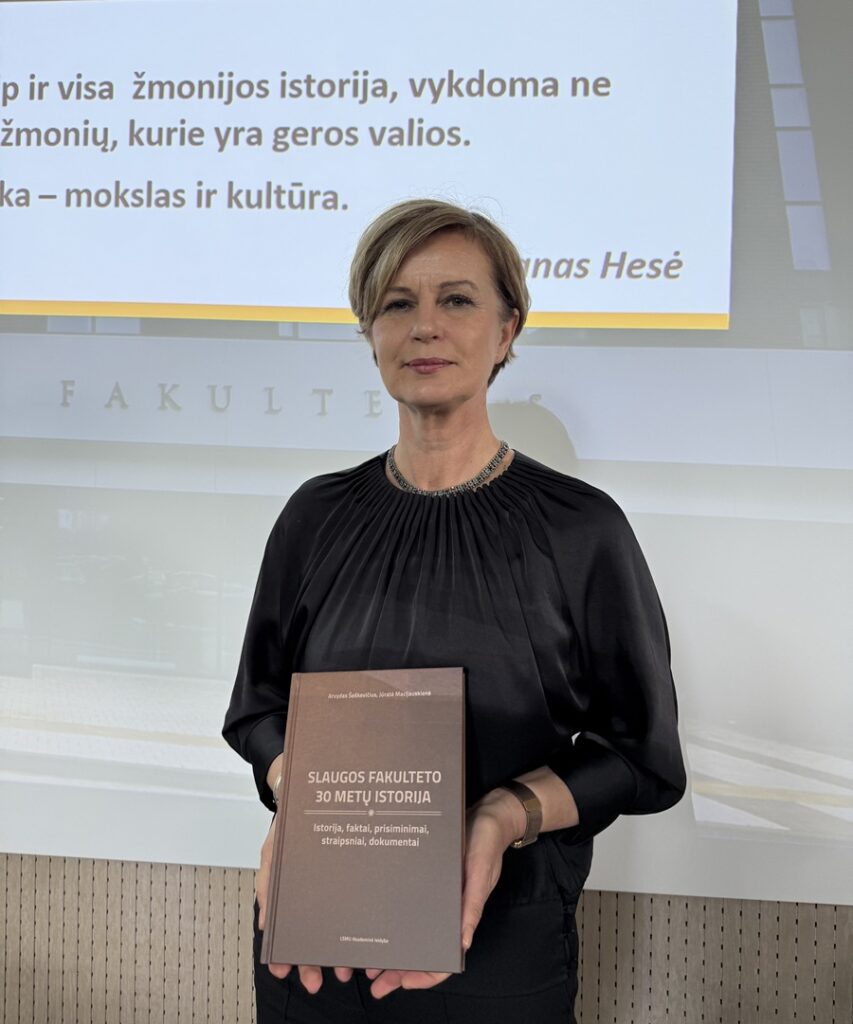
“The university has been counting its history for more than a hundred years, has its own creators and is making its history as much as it remembers it. Those who created are significant, but those who remember and write down who created and how they did it are just as important today,” he said.
Rector Emeritus Prof. Habil. Dr. Vilius Grabauskas, who was also present, said that nursing studies is one of the cornerstones of medicine.
“We have to pay great tribute to the professionals who created this Faculty. Professor Arvydas Šeškevičius was the soul of the entire process and the emergence of the Faculty of Nursing. Later the leading role was taken over by Professor Jūratė Macijauskienė, an inspiration for studies and practice in nursing,” added the Rector Emeritus.
Meanwhile, Rector Emeritus Prof. Habil. Dr Remigijus Žaliūnas emphasised that the Faculty of Nursing was one of the first to introduce innovative ideas of nursing studies and practice.
“If we look at the European context, the Bologna process began much later than the establishment of the Faculty of Nursing. Already then we started talking about undergraduate, postgraduate studies, about the content. No one has ever said that holistic approach, critical thinking, mobility of students and lecturers, and the role of a nurse in the whole health system are very important. A lot of it started with the Faculty of Nursing. When one creates within a new space, there is more opportunity not only to discuss innovative ideas, but also to implement them,” shared his reflections Rector Emeritus Prof. R. Žaliūnas.
Remembered the contribution of Prof. A. Šeškevičius
“Documents and articles help us keep the memories, so this book will be a testimony to all that we have done together,” said one of the authors of the book Prof. J. Macijauskienė.
She emphasised that the main impetus for the publication was the love for the written word, respect for history and dedication to the University of Professor A. Šeškevičius,.
“This book was begun by the initiative of Professor Šeškevičius. Perhaps the path of the book would have been shorter if in 2023 he had not passed away,” said the Dean of the Faculty of Nursing, who invited the participants to commemorate the professor’s memory with a minute of silence.
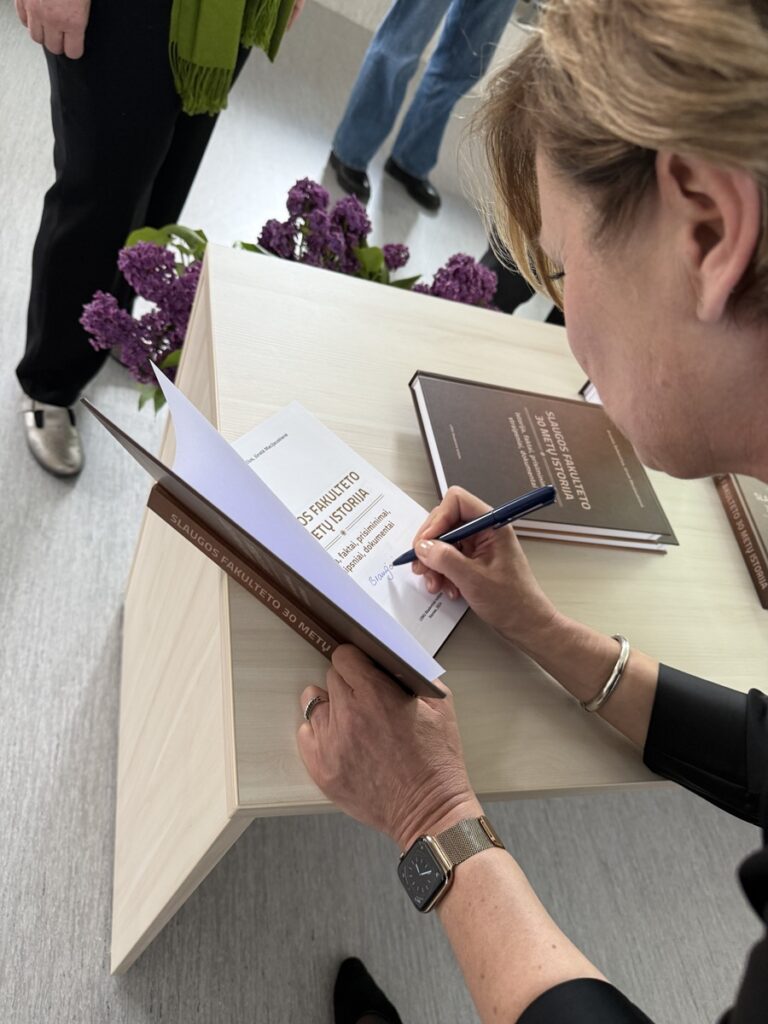
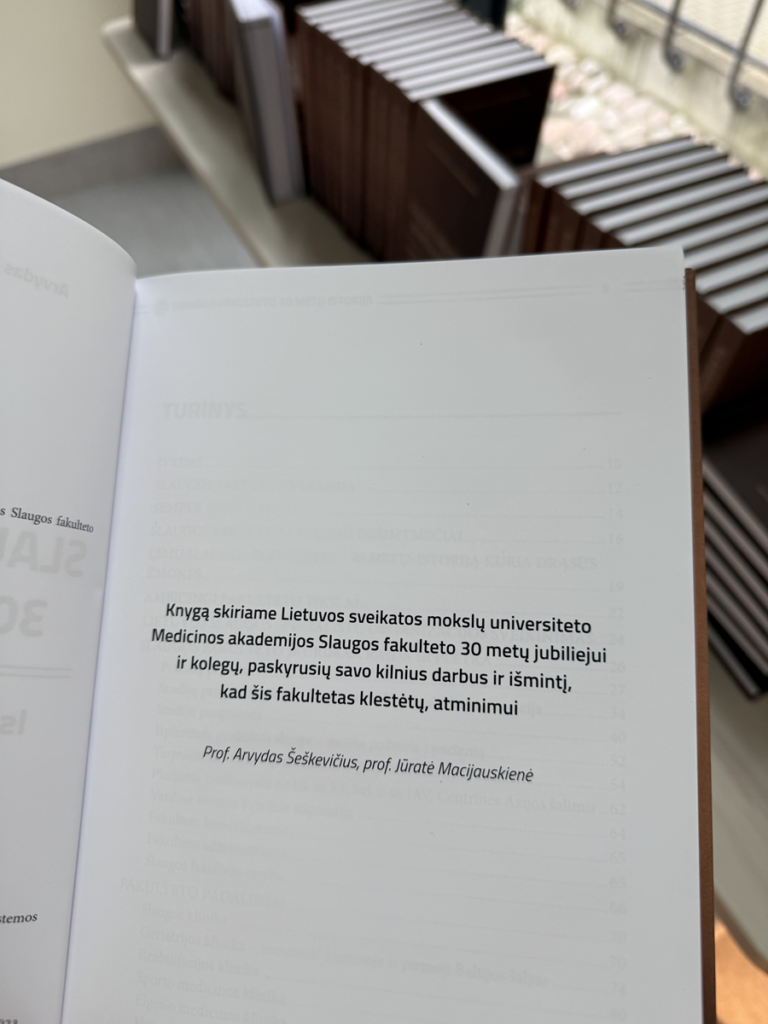
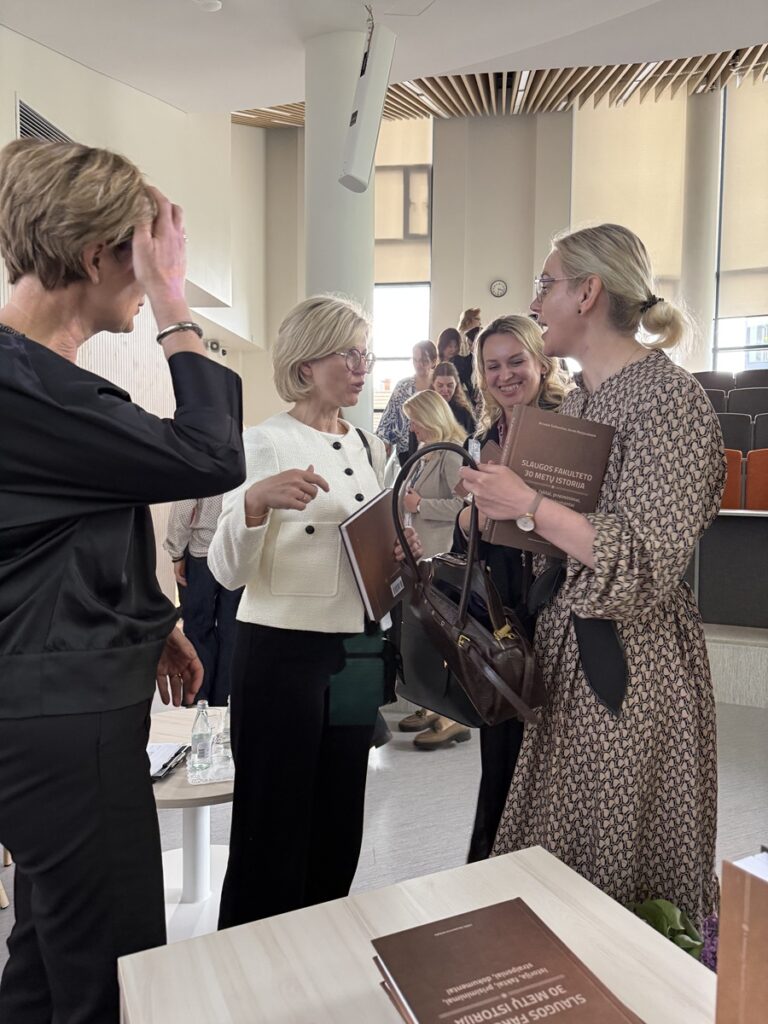
The book “Faculty of Nursing 30 Years of History. History, facts, memories, articles, documents” tells how the need to create modern healthcare study programmes grew after the restoration of Lithuania’s independence. The Faculty of Nursing of LSMU has become a significant response to these changes – professionals, who are an integral part of the Lithuanian healthcare system, have been trained here.
The publication reveals how the faculty’s activities are closely intertwined with science, practice and social responsibility. It highlights the importance of interdisciplinarity, the impact of research on public health, the quality of studies and institutional openness to innovation and internationality.
The presentation of the book became not only an academic celebration, but also a symbolic bridge of time between the past, present and future. It is a sign of respect for all those who have contributed to the growth and success of the faculty.

